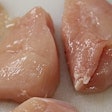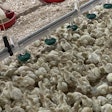The U.S. Department of Agriculture (USDA) is conducting its first economic survey of broiler growers and expects to release the survey results in early 2008.
The USDA survey, known as the "Agricultural Resource Management Survey," will collect data on 2,200 poultry farms in 17 states that combined raise 95 percent of the nation's chicken.
“Broilers are probably the largest commodity we have not hit in the earlier surveys," said Jim MacDonald, who heads the USDA survey on poultry. "This is going to help us understand what types of broiler producers have better returns than others. It also helps us think about where the industry is going in the future."
Broiler growers make large capital investment to build poultry houses and buy computerized systems to control the environment inside. The trend in the industry has been to build larger houses with up-to-date equipment, which can cost farmers on average $280,000 or more per house.
Besides capital expenditures, the survey would capture information on household income. Often, poultry farmers have multiple sources of income. Some grow grain or other commodities on the side, while others supplement their income with a job off the farm.
The Agricultural Resource Management Survey is the primary source of information used by federal officials and policymakers to understand the costs of being a farmer in America.
In case of a major disaster such as an outbreak of avian flu, the government may be able to use information derived from the survey to calculate the losses suffered by the poultry farmers. The government and states rely on information provided by the poultry companies and farmers to calculate farmers' income.
"Part of the information will be on the cost impact of the producers," said MacDonald. Regulators would have a better gauge on the impact of tougher regulations on producers.
"We are always glad to see data," said Richard Lobb, spokesman for the National Chicken Council in Washington, D.C.
Lobb said information on poultry farmers' operations is unique because unlike other producers, such as soybean farmers, poultry growers neither own nor sell the chickens they raise. Their income is based on their contract with a poultry company and their ability to meet certain requirements including the weight and size of birds.
Many field researchers surveying poultry farmers most likely will conduct their interviews outside the farms, in local coffee shops and other venues, said MacDonald. Poultry growers are taking extra precautions to keep strangers off their farms to protect against diseases.


















